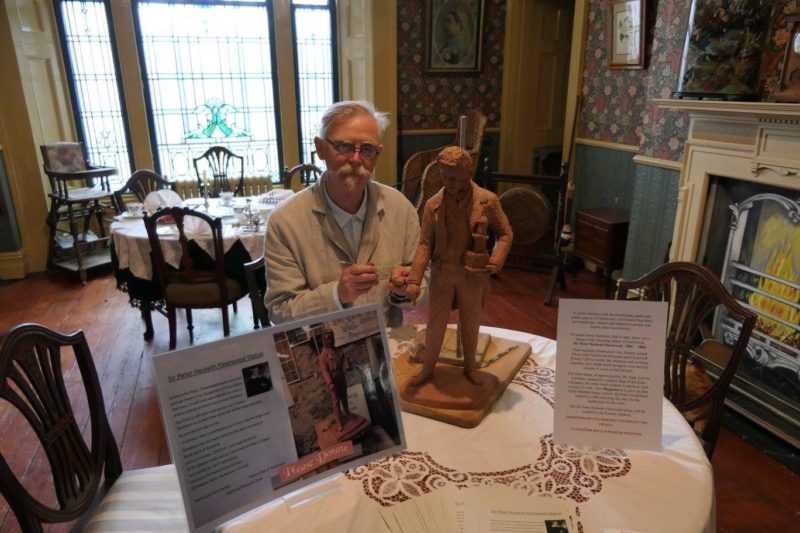Cat Smith Working for Lancaster and Fleetwood

On Sunday I’m looking forward to attending the unveiling of a new statue marking the significant contribution made by Fleetwood’s founding father, Sir Peter Hesketh Fleetwood (1801-1866).
The bronze statue of Sir Peter will stand in Euston Gardens – a reminder of a remarkable man who as a student holidaying in coastal towns in the south of England became focused on the lack of resorts in Lancashire. He was concerned that the county’s working classes could not afford to travel south for a holiday as he did. His ambition to create a railway was driven by his desire to enable Lancashire mill workers to take day-trips to the seaside.
He was a liberal who opposed monopolies, slavery and capital punishment and was in favour of reforming the Corn Laws – these laws raised food prices and the costs of living for the British public, and hampered the growth of other British economic sectors, such as manufacturing, by reducing everyone’s disposable income.
It could be argued that Sir Peter paved the way for the creation of the Labour Party in 1900 campaigning as he did to improve the lives of those disenfranchised by a system weighted in favour of rich landowners. He worked tirelessly to create the town of Fleetwood and lost an enormous amount of money in doing so.
It’s a fantastic achievement by the Fleetwood Civic Society, Fleetwood Museum and Fleetwood Rotary Club to raise the thousands of pounds required to build this statue – and the community as a whole should feel very proud in donating the vital funds to bring this idea to fruition. A massive congratulations to you all.
In many ways it could be considered strange that in this digital age we still have a desire to honour key historic figures with a statue.
Last week a statue commemorating the life of the suffragist, Millicent Fawcett, was unveiled opposite Parliament. Millicent campaigned for women’s right to vote during the early 20th Century and is seen as one of the most influential feminists of the past 100 years. The bronze casting, by the artist Gillian Wearing, is the first statue of a woman erected in Parliament Square. It features her holding a banner reading “courage calls to courage everywhere” and was commissioned as part of this year’s centenary of the 1918 Representation of the People Act – which gave some women over the age of 30 the vote.
It’s so important to see a female statue in Parliament Square. Boys grow up seeing that they can become someone immortalised as a statue but girls don’t. Millicent is a great role model – but the battle for equality is far from over – not least in the numbers of statues commemorating great women up and down the country! I hope this is the start of a time in history when we publically recognise the huge contribution women have made to improving society.
Finally I’m happy that Labour has announced plans to place a cap on the total amount that can be paid in overdraft fees or interest payments. This comes at a time when real wages are lower than when the Tories first came to power in 2010, which has created a vicious circle of debt for some of the poorest and most financially vulnerable households in our country.
Independent debt campaigners have warned of “persistent overdrafts”, where high fees and low wages prevent families ever dragging themselves fully back into the black through no fault of their own. These plans will help an estimated 2.7 million people who according to the Financial Conduct Authority are stuck with permanent overdrafts and using them over 85% of the time and incurring higher charges. Surveys show that nearly 3 million people have to rely on their overdraft for essentials like food and household bills. This has to stop.
